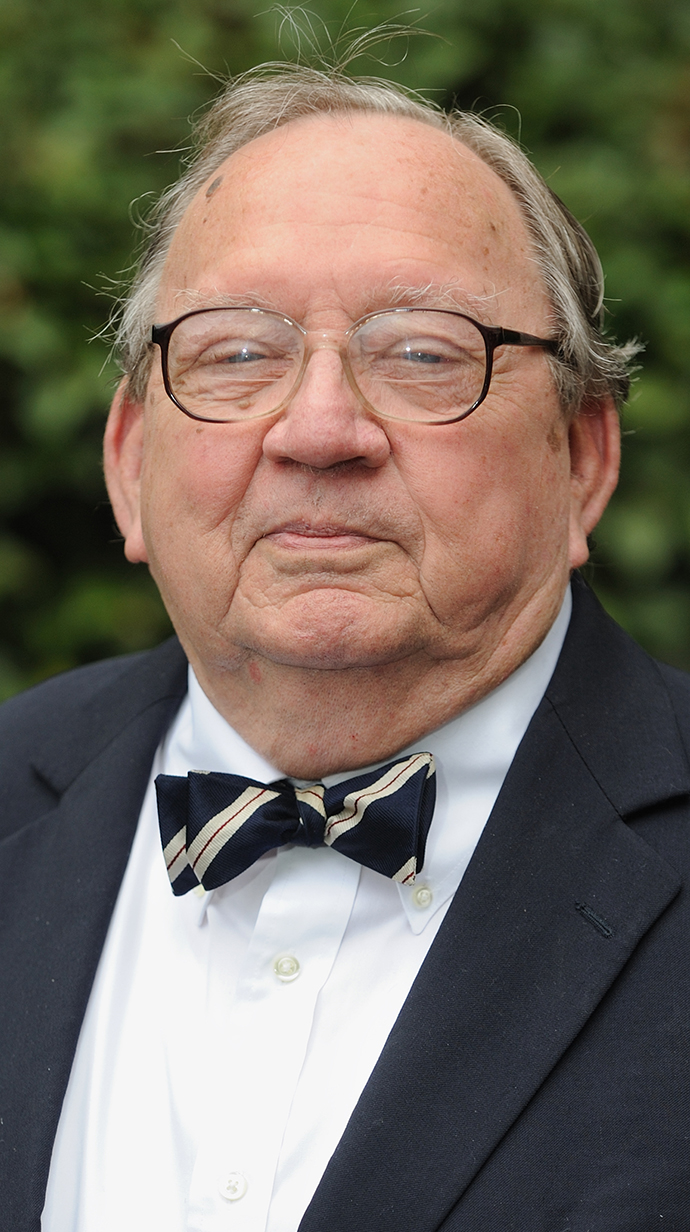New UM Collection Preserves Mississippi's Past for Future Scholars
Harry Owens Collection boosts acquisition of rare documents for global research

OXFORD, Miss. – Researchers from around the world will have more opportunities to broaden their understanding of Mississippi and the surrounding region during the Civil War, thanks to the new Harry Owens Civil War Archival Collection at the University of Mississippi.
The collection is a partnership between the Center for Civil War Research and the Department of Archives and Special Collections, made possible by former students.

Inspired by their beloved history professor, Harry Owens, former students created an endowment to raise money for library materials related to the war. Owens, who taught history at Ole Miss for 32 years, died in March 2020.
"We wanted to find a way to promote original research on the Civil War era in the Mississippi region," said April Holm, associate professor of history and director of the Civil War center. "We realized we could use these funds to purchase precious historical documents that would then be preserved in the university archives for the use of students, researchers and the public."
Fueled by donations, the library's budget for archival purchases practically doubled.
Original, or primary, sources from bygone eras are what historians use to write history and how people learn about history. Without such sources, often housed in archives, people would not be able to research, write or learn about the past.
The Center for Civil War Research prioritizes the purchase of manuscripts, such as letters, diaries, official documents and other records from the Civil War and Reconstruction era in Mississippi and the surrounding region, Holm said.
The Ole Miss collection's first manuscript was acquired recently due to the keen eye and careful consideration of Jennifer Ford, senior curator of manuscripts.

"I think about it from the view of a researcher," Ford said. "What is this document going to provide? What can this tell us? What can someone take from this?"
From this acquisition, researchers can learn about Holly Springs in December 1862.
"I found a listing from a bookseller for a 10-page letter that was written by a cotton merchant from New Jersey who had been present during the raid in Holly Springs in December 1862 by the Confederate forces under Earl Van Dorn," Ford said. "In a very detailed letter to his dad, he describes being afraid that he was going to be killed and the military action that he saw."
As part of the collection, it must be made available for researchers and anyone interested in the war in this region. That is done through transcription, scanning and preserving.
The man's penmanship in the letter was exquisite, which made it easy to transcribe, Ford said.
"We always want to have an accessible version for those who may not be able to interact with the scans," she said.
Once scanned at the highest resolution and transcribed, the images are uploaded to the university's online archive collection known as eGrove.

Those who would like to tangibly interact with the letter may do so on the third floor of the J.D. Williams Library, where the archives and special collections are housed.
"Paper is so much more durable than people imagine," Ford said. "Despite a lot of people thinking you must wear gloves when dealing with such a document, I don't require gloves for paper, because I find that when you wear gloves, you can tear things easily because you lose your tactile sensations.
"I simply require clean, dry hands with no jewelry."
When not being studied, the letter is protected in an acid-free folder inside an acid-free box that is kept in a humidity- and temperature-controlled room and out of the light as much as possible.
Another item that will be made available for analysis soon is a ledger belonging to Jefferson Davis. Ole Miss alumnus Don Barrett, of Lexington, donated the ledger to the collection.
To add manuscripts, documents and similar materials to the collection, contact Jennifer Ford at jwford@olemiss.edu. To contribute to the acquisition fund at the UM Foundation, click here.
"Every source added to our collection is another piece of the past that will be preserved for researchers in the future," Holm said.
Top: A letter from a New Jersey cotton merchant recounts his experiences after being caught up in a raid on Holly Springs by the Confederate army in December 1862. The letter is the first item in the Harry Owens Civil War Archival Collection, and it has been scanned and transcribed so researchers around the world can access it.
By
Marisa C. Atkinson
Campus
Office, Department or Center
Published
November 25, 2025
